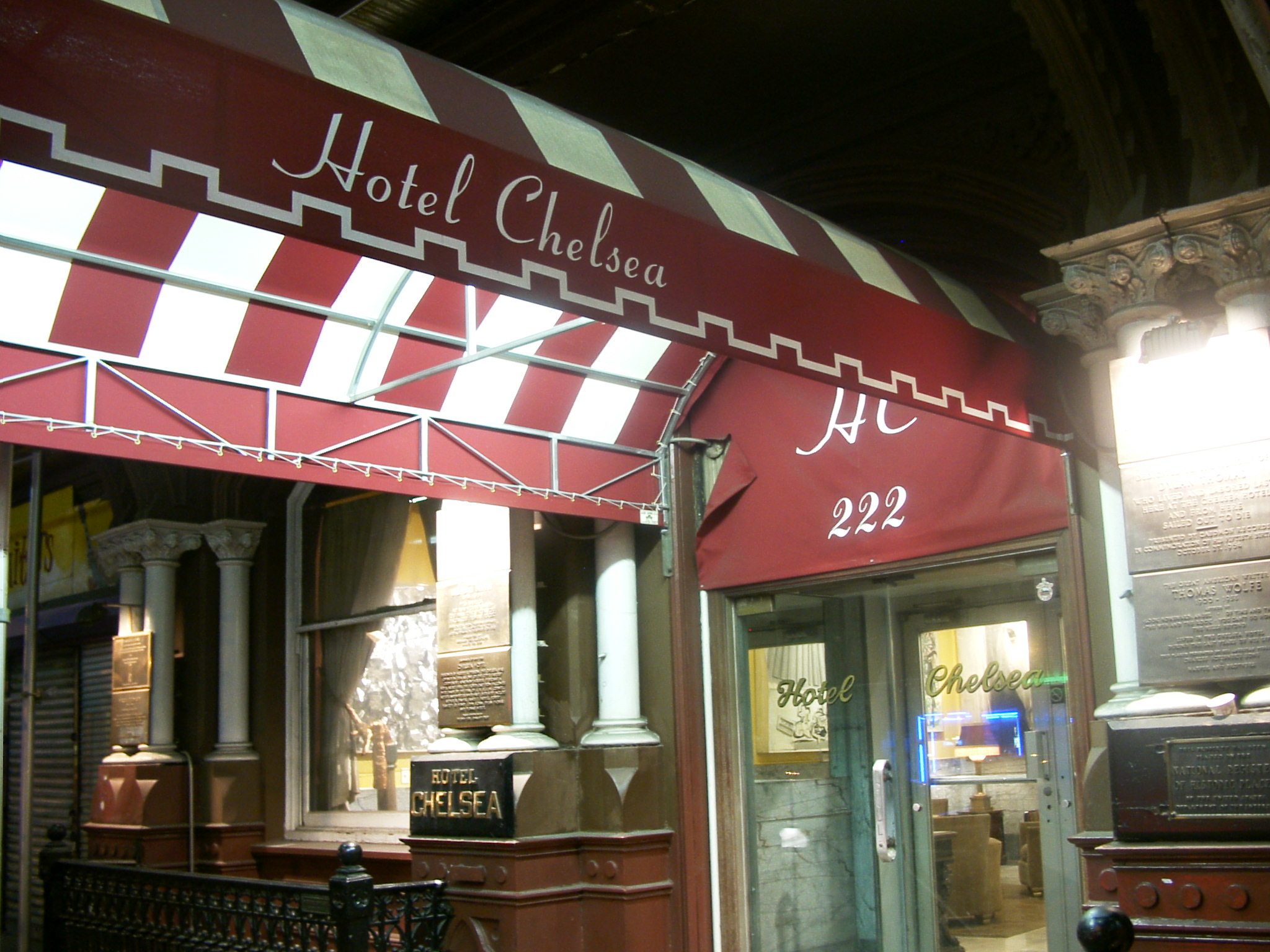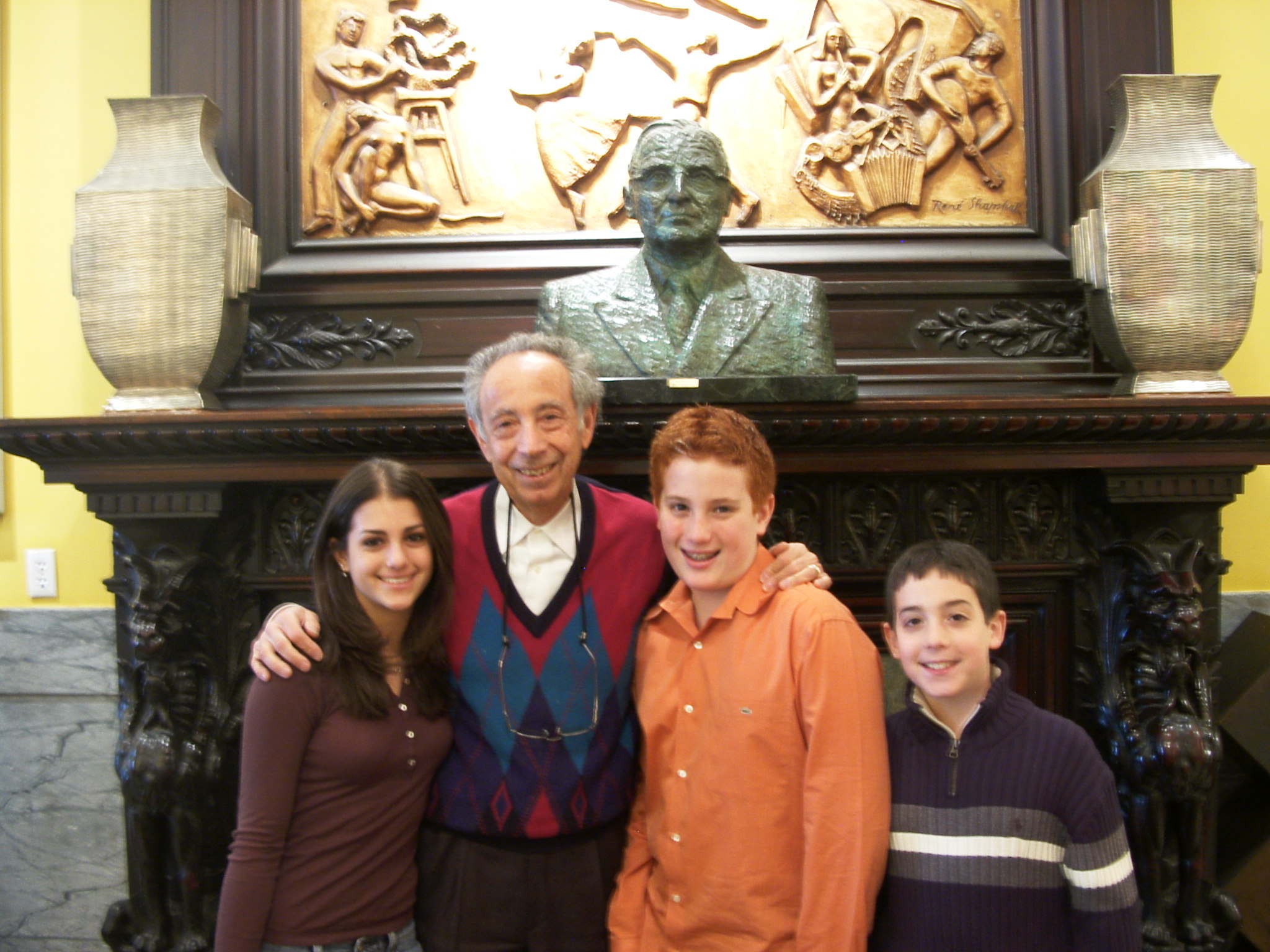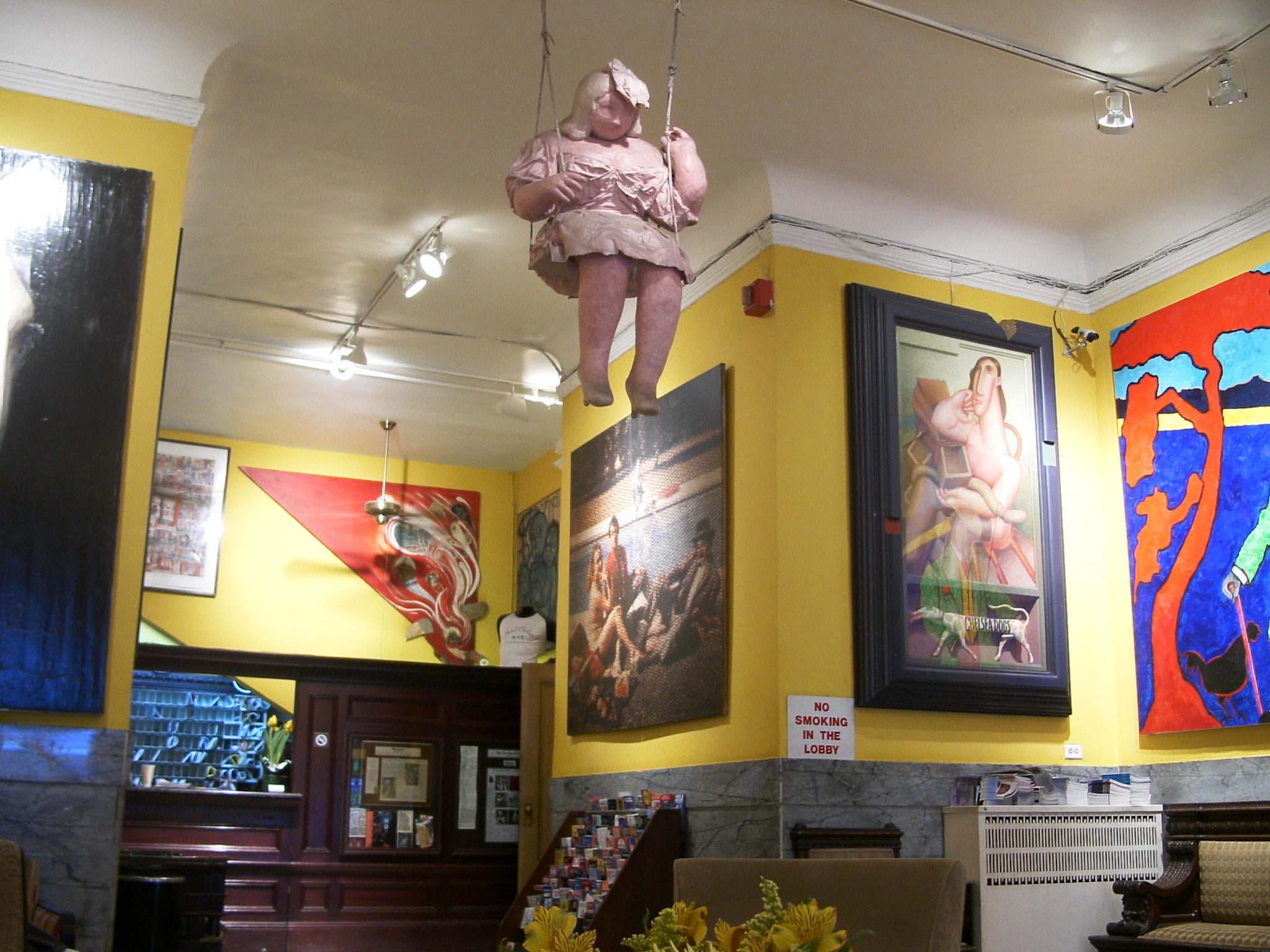この記事は2005年3月19日にデイリーヨミウリ紙に掲載されたものを、同紙の許可のもと再掲載しています。日本語抄訳はこちらをご覧下さい。
This is a reprint of the article that was published in Daily Yomiuri on March 19, 2005.
Wataru Doi Special to The Daily Yomiuri
If you are an enthusiastic fan of art or literature, the Hotel Chelsea in Manhattan is probably a place you desire to stay. This is where Arthur Miller slept and wrote, Mark Twain was a guest, and literary scholar Arnold Weinstein lived for 30 years. Artists such as Jim Dine and Larry Rivers were also guests of the hotel.
If those names fail to intrigue, consider the shocking incident involving punk rocker Sid Vicious of the Sex Pistols and the bloody death of his girlfriend Nancy that took place in Room 100.
But whatever your reason for checking in, staying at the Hotel Chelsea gives you an unparalleled experience. The establishment turns 100 this year, and you can share the history that artists, writers, and musicians have created over the years.
The hotel stands on 23rd Street between 7th and 8th avenues in Manhattan. It was built in 1884 and was first used as a cooperative apartment building. It began life as the Hotel Chelsea in 1905.
"My father took over the Hotel Chelsea in 1940," says managing director Stanley Bard. "He retired in 1957 and taught me management. Since then, I've been running this hotel almost for 50 years."
The hotel is filled with art to complement its legends. The walls of the lobby, front desk, and stairways are covered with paintings, and a strange humanoid object hangs from the ceiling of the lobby.
I stayed on the ninth floor, and there was an eccentric, red and yellow painting on the wall. According to Bard, this is one of a few paintings in the hotel that was done by a Japanese artist.
"I love art. Some of them are famous artists' works and others are my friends' recommendations. There are also works of artists who are living here now," Bard explains.
But it's not necessarily obvious who the stars are. Back when writer O. Henry stayed at this hotel, he registered under a different name every night.
Famous musicians have been guests as well. John Lennon, Bob Dylan, Jimi Hendrix and Jon Bon Jovi stayed here. Bard remembers: "Sid Vicious came and stayed here because Bob Dylan was staying. Vicious wanted to meet Dylan. Vicious' girlfriend wanted to kill herself and Vicious helped her. It was bizarre, and sad."
But a legendary past is not enough to survive in competitive New York, and the hotel industry is no exception. Even the venerable Plaza Hotel beside Central Park is on the verge of closing. It is amazing that the Hotel Chelsea has continued drawing artists and tourists for 100 years.
"It's because artists have the liberty to be themselves here. They do not have to pretend to anyone. The Hotel Chelsea gives the right to artists to be themselves. It is a freedom of spiritual liberty," explains Julia Calfee, a prizewinning photographer who created the book Spirits and Ghosts. She has been living in a corner suite since October.
Calfee recounts the story of an Israeli painter who wanted to stay at the hotel, but checked in with only 300 dollars to his name. "Stanley (Bard) allowed him to stay for three months. But he finally lived here for two years. After that, he became famous and paid back all of the unpaid rent."
Photos by Wataru Doi
The entrance to the world-famous
Hotel Chelsea
in Manhattan.
Hotel Chelsea's longtime managing director
Stanley Bard and his grandchildren.
Artists' heaven, lobby of Hotel Chelsea
is filled with arts.
The painter continues to live here, and has been joined by his children and grandchildren as Chelsea residents. Calfee continues: "This is typical Stanley. He supports art. In a way, he creates possibilities for the artist. This hotel has a strong concentration of artists living or staying under one single roof."
According to Calfee, her room is the one where novelist Thomas Wolf lived, writing out his manuscripts longhand. About 70 percent of the hotel's rooms are residential, and most of them are occupied by artists.
"Last year, I told Stanley about my idea to create a photo book of the people staying here. He picked this room and suggested I stay here. At first, I thought the room was old. But as I continued living in it, I became aware how fantastic this room is. The atmosphere makes me creative. Sunrise and sunset is also beautiful up here."
Of course, the hotel welcomes tourists as well. Bard says, "Our name stands out for artists, but even tourists love the feeling of this hotel."
Bard says people all over the world love to visit this hotel. He has many guests from Japan, including a Japanese author who stayed here last year. Japanese rocker Takao Tajima wrote on his Web site that staying at the Chelsea was the fulfillment of a dream, his room transporting him to the world of Leonard Cohen--the Canadian singersongwriter who recorded a song about the hotel.
Each room is different. A clerk says: "There are 400 rooms here and every room has a history. This is the world, not Manhattan, not New York, not a nation, but a world landmark."
Unfortunately, the infamous Sid Vicious room no longer exists. "Sid Vicious killed his girlfriend in room 100. We rebuilt the floor. I (was not here to) see the event because I was in junior high school at that time, but I knew about it from the newspaper," the clerk said. Today, Bard runs the Hotel Chelsea with his son, and he hopes his grandson and great-grandson will still be running this hotel when it marks its next 100 years.
He says the key to its survival is its combination of history, art and the kind of people who stay here. "Creative people feel so comfortable here. Writers and artists of this hotel are not only legends, they are living legends."
Bard's management philosophy calls for keeping the Hotel Chelsea different from anywhere else: "I don't want to make everything the same. I preserve individuality and continue individuality. This is the most important (consideration) to manage this hotel. I do not want anybody to buy (the place). Individuality means difference." (March 19, 2005)
(This article was written and posted on March 19, 2005)


